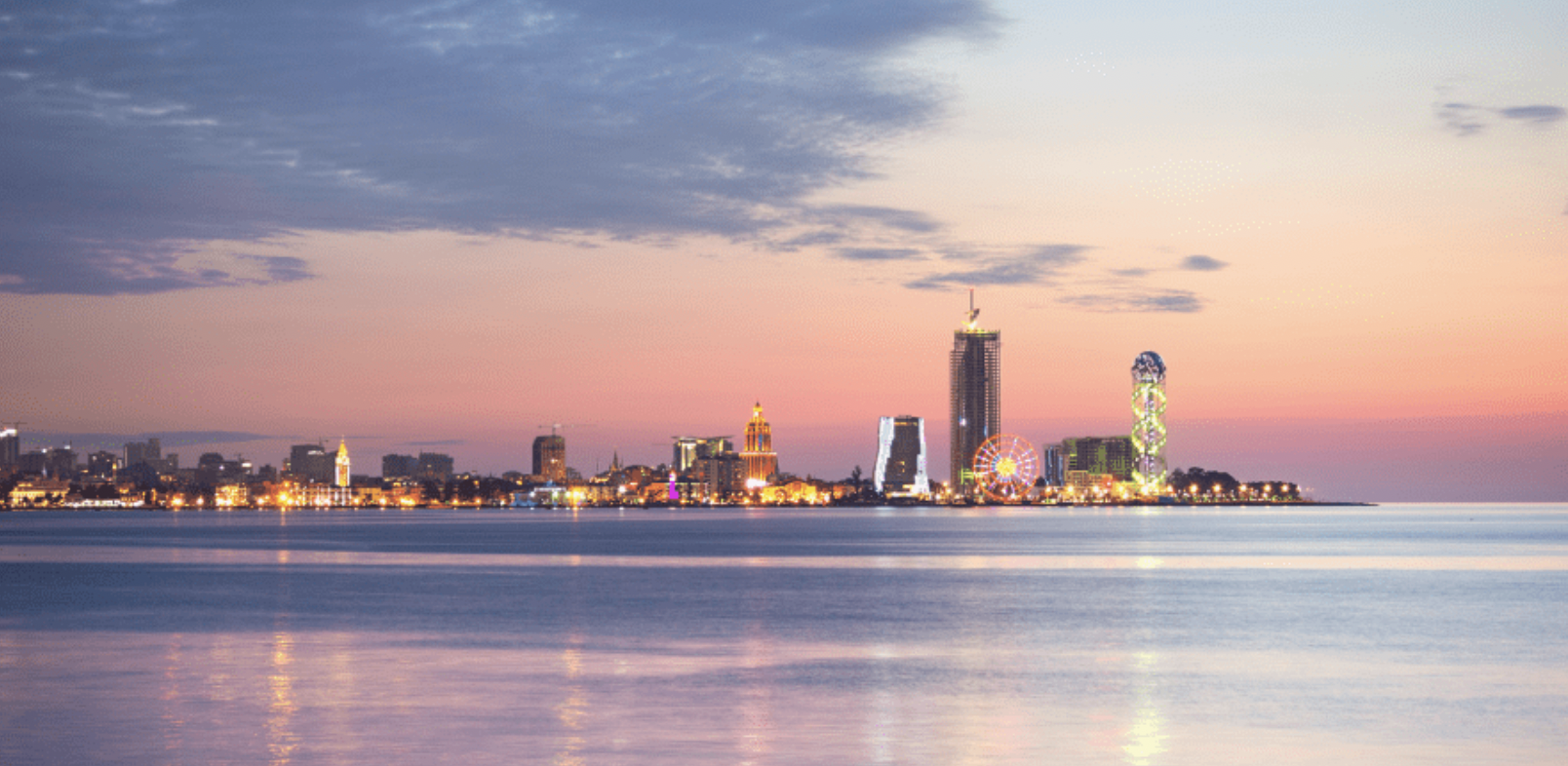Digital Nomads In 2020: The Ultimate Guide
Countries starved of tourist money started rolling out digital nomad visas to attract digital nomads. Remote workers ditched their workplaces and home offices to work from scenic locations worldwide.
The pandemic changed the world. One aspect that completely transformed post-pandemic was the work model. Working remotely became the norm rather than a privilege for many professionals.
Things clearly worked out for the best since digital nomads now contribute around $787 billion to the global economy annually.
7.3 million – that was the number of digital nomads in the US in 2019. Do you know what that number is in 2023? 16.9 million. That’s a staggering 131% increase. The reason? The pandemic and the work model changes that followed.
The sudden rise in the remote working trend, the introduction of digital nomad visas, and ever-increasing conversations about the digital nomad lifestyle have made people believe that digital nomadism is a fairly new concept. That’s not true, though.
People have been living an untethered life of freedom as nomads for ages. The term digital nomad was coined in 1997. Soon after, the internet boom was the best thing to ever happen to nomads because now the options were endless. They could just pack a laptop, pick a place with good Wi-Fi and go about their adventure.
Costa Rica
Costa Rica is a country in Central America with coastlines in the Caribbean and Pacific. The country is known for its picturesque waterfalls, stunning beaches, low cost of living, and biodiversity.
Costa Rica means rich coast – the name makes perfect sense when you get to know that it contains nearly 6% of the world’s biodiversity despite being less than 1% the size of the US. The country also consistently tops the charts for the best retirement destinations in the world. People come to Costa Rica for the beaches and stay for the pura vida lifestyle, low cost of living, and favorable business environment that protects your privacy. Not to mention the territorial tax regime exempting foreign-sourced income.
Before Costa Rica rolled out its digital nomad visa, digital nomads used to visit Costa Rica on a tourist visa and do border runs to extend their stay. Now, the digital nomad visa allows remote workers, freelancers, and location-independent professionals to enter and stay in the country for a year as long as they work remotely and can prove the required (minimum) monthly income, i.e., $3,000 USD or $4,000 for a family.
If you want to establish residency in the country, you won’t get it through the digital nomad route. Instead, you’ll have to explore other options like the Pensionado visa, Rentista visa, or Inversionista visa. The country has plenty of residency programs for foreigners seeking a home there.
Costa Rica has a population of over five million, of which over half a million are expats (mostly from the US). The country frequently makes the top ten lists of countries where expats are the happiest with work, life, and cost of living.
Georgia
Situated at the intersection of Europe and Asia, Georgia is a beautiful Eastern European country famous for its wines, cuisine, ancient monasteries, and capital city Tbilisi. Georgia is one of our favorite digital nomad destinations thanks to its business-friendly environment, tax-friendly regime, liberal immigration policies, to name just a few reasons. Citizens of over 90 countries can enter and stay visa-free in Georgia for up to a year. How many countries can boast of that?
The country has a personal income tax rate of 20% and a corporate tax rate of 15%, but foreigners can enjoy tax rates as low as 1% under the Individual Entrepreneur scheme. The country has plenty of tax incentives and even has a tax residency route for high-net-worth individuals looking to benefit from its low tax rates without spending half a year there. Georgia is exceptionally foreigner-friendly, and one can see that in their range of residence permits. A foreigner can get residency in Georgia by purchasing real estate or starting a company.
Tbilisi, the largest city in Georgia, is quickly becoming a digital nomad favorite in the region thanks to its charismatic vibe boasting a unique mix of modern and ancient architecture, aesthetically built co-working spaces and a thriving expat community.
Thailand
Can it really be a list of the best digital nomad hotspots if it doesn’t mention Thailand? Thailand is a crowd-pleaser with lush green mountains, ancient temples, delicious food, and a rich culture.
Our first Southeast Asian entry on this list, Thailand, has everything a digital nomad would want in a country – scenic locations, a large expat community, speedy WIFI and much more.
Thailand has a wide range of visas for foreigners depending on their lifestyle, income, profession, and motives. Whether you want to live in the country for a few months or ten years, Thailand has a visa for you.
The most recent is the Thai long-term visa (Thailand Golden Visa), allowing four categories of foreigners (including digital nomads) to live in Thailand for ten years, among other privileges.
Non-residents in Thailand are only taxed on their Thailand-sourced income. Moreover, depending upon your residency route, you may be entitled to certain tax cuts and benefits.
Indonesia
Comprising over 17,000 islands, Indonesia is situated at the intersection of Southeast Asia and Oceania.
For many digital nomads, Indonesia is all about Bali. True, the hype about Bali is not without reason. Famous for breathtaking sunsets, rice terraces, volcano trekking, and infinity pools in the middle of the jungle, Bali is a cult favorite among digital nomads and remote workers.
In 2021, the Indonesian government announced its plans to launch a Bali digital nomad visa allowing remote workers to live and work tax-free in Indonesia for up to five years, as long as they could prove a foreign income and not work for a local company. So far, the program hasn’t been launched, but we will of course update you once more news is available.
Until the Bali Digital Nomad Visa becomes a reality, digital nomads looking to work in Indonesia have the following visa options.
Visa On Arrival: This visa option is valid for 30 days and can be extended once for another 30 days. It is available to citizens of over 150 countries.
B211A Visa: It is also called the Social Cultural Visa. It is valid for 60 days and can be extended twice for 60 days each, giving you 180 days in total. This is an excellent visa option for remote workers who want to avoid border runs.
Non-residents are taxed on their Indonesian-sourced income, so you can save big bucks in Indonesia if you earn a foreign income.
Malaysia
Many people tend to ignore Malaysia, blinded by the grandeur of nearby countries like Hong Kong and Singapore. Malaysia’s charm lies in its skyscrapers, bustling cities, charming countryside, and stunning beaches. DE Rantau Nomad Pass allows foreign remote workers to live and work in Malaysia for 3 to 12 months. The pass allows multiple entries and can be renewed for another 12 months.
For those looking to stay in Malaysia long-term, the country has an excellent MM2H program allowing foreigners to live in Malaysia for ten years. Other options are the entry permit and the Labuan work permit.
Malaysia is one of the few highly developed Asian countries that allow complete foreign property ownership. Foreign income is tax-exempt for non-residents. Moreover, digital nomads with a DE Rantau Nomad Pass can benefit from nomad hubs and communities established by the MDEC.
Malta
An island country in the Mediterranean Sea, Malta is known for its incredible landscapes, fascinating military history, and stunning churches. Malta is part of the Schengen zone as well as the EU.
Malta introduced its digital nomad visa called the Nomad Residence Permit (NRP) in 2021, enabling remote workers to legally live and work (remotely) in Malta. The Nomad Residence Permit is issued for one year and can be renewed. Malta never had a shortage of tourists or expats, even before the digital nomad visa. The country hosts digital nomads from all over the world, seeking Malta’s excellent year-round sun, high-speed internet connectivity, diverse community, and excellent living standards. Speaking of speedy internet, Malta is the first EU country to have a nationwide 5G network.
Malta is known in the RCBI world for one of the best citizenship-by-investment programs. The country has a highly favorable business environment, the stability of an EU member state, and excellent living standards. Of course, Europe’s Golden Visa programs are closing rapidly and Malta is certain to follow, sooner rather than later. So if you are interested in obtaining Maltese CBI we strongly urge you not to waste time and get in touch with us today.
UAE
Not all digital nomads prefer living in a treehouse in a tropical setting far from the city crowds. Some love the hustle and bustle of the city, high rise living and proximity to the best things money can buy. If that’s you, you’ll love the UAE, especially Dubai.
Dubai has a digital nomad visa called Work Remotely from Dubai, allowing people from all nations to apply for a one-year remote work visa as long as they can prove that they work for a foreign employee. Business owners can also apply for this visa, although they have to meet additional requirements.
Dubai has always been a favorite among investors, entrepreneurs, and digital nomads because of its tax-free regime. As a digital nomad living in the UAE, you won’t have to pay personal income tax, saving you lots of money to spend on your lifestyle.
The Future is Remote
The pandemic made one thing clear; a lot of people don’t want to work from an office unless they absolutely have to, and this sentiment isn’t going away any time soon.
In fact, it will only increase, and that’s why we’re seeing incentives like the 4-day workweek being introduced in some countries.
Many countries have already introduced their versions of digital nomad visas, and that list will only grow as more countries design specific visa options for digital nomads.
If you’re a digital nomad itching to explore your next destination, the only problem you will face is the abundance of options. However, just because a country has a digital nomad visa doesn’t mean it suits you. So, how do you decide what’s best for you?





